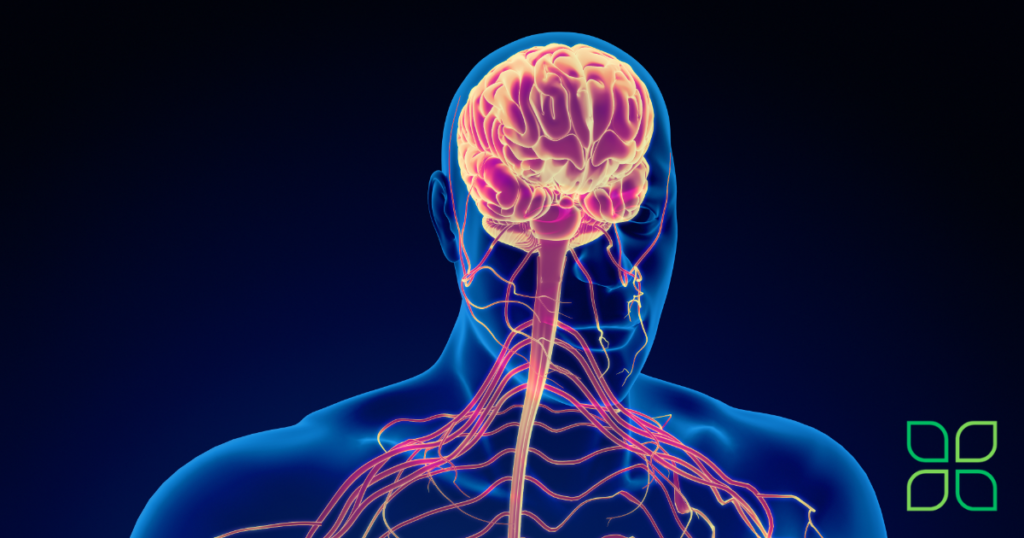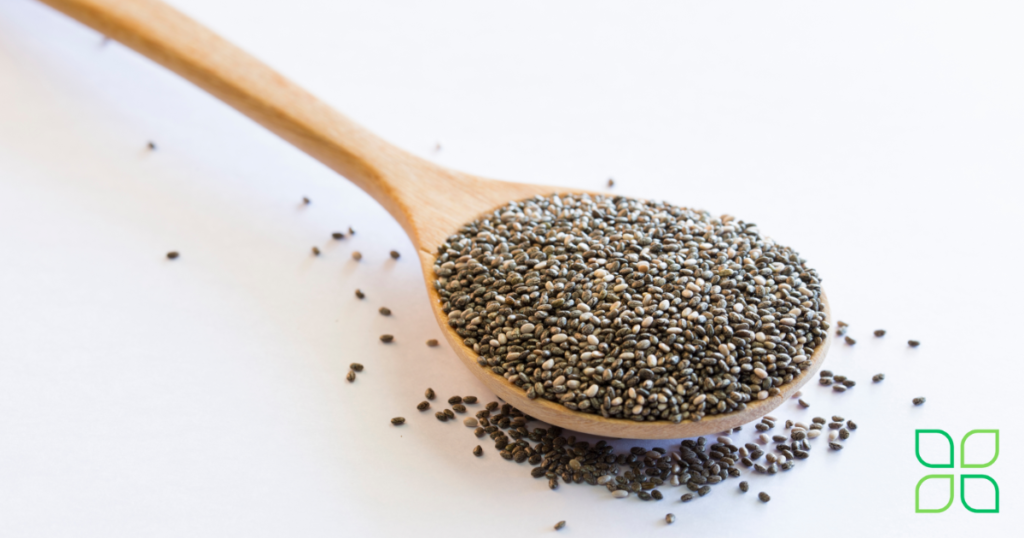The Intricate Connection between Brain and Nervous System: Importance of Detoxification for Optimal Functioning
It is fascinating to delve into the intricate connection between our brain and our nervous system. Many people view them as separate entities, but in reality, they are intimately intertwined. Our brain serves as the control center, orchestrating intricate processes, while the nervous system acts as the messenger, relaying signals to various parts of our body.

To truly understand the importance of detoxifying our brain and nervous system, we must first grasp their critical roles in our overall well-being. Our brain is responsible for our thoughts, emotions, and memories and regulating numerous bodily functions. Meanwhile, the nervous system has the important role of encompassing the central and peripheral nervous systems, enabling communication between our brain and the rest of our body.
Over time, our brain and nervous system can accumulate toxins that hinder optimal functioning. These toxins may originate from various sources, including environmental pollutants, chemicals in our food and water, stress, and even negative thought patterns. If left unchecked, these toxins can impair the communication pathways within the nervous system and interfere with brain function, leading to various health issues. This is the importance of incorporating a nervous system and brain detox.
Holistic Approaches to Detoxify the Brain and Nervous System: Supporting Natural Elimination Processes for Optimal Health
When we speak of detoxifying our brain and nervous system, we are essentially referring to the process of eliminating these accumulated toxins. By doing so, we aim to restore the delicate balance necessary for optimal brain function and overall wellness. Detoxification involves supporting the body’s natural processes of elimination, such as sweating, urination, and bowel movements, to remove these harmful substances from our system.
Now, let’s look at ways to support and speed up the elimination of unneeded substances from our brain and nervous system.
One effective way to detoxify our brain and nervous system is through a holistic approach that combines various practices. These may include adopting a nutrient-rich diet, using natural herbs, engaging in regular physical activity, practicing stress management techniques, getting ample sleep, and incorporating techniques like meditation and deep breathing.
The first step is getting the proper nutrients into your system to support detoxification. A nutrient-rich diet is crucial, as it provides the necessary vitamins, minerals, and antioxidants that support brain health and aid in detoxification.
Nourish Your Brain: 13 Top Foods for Optimal Function and Detoxification
Here are 13 top foods that will support your brain and nervous system to function at their best in this process:
1. Berries: Berries are high in antioxidants and anthocyanins, which protect the neurons against the damaging effects of aging. Eating berries regularly may help protect against neurodegenerative diseases.
2. Coconut Oil: Coconut oil is packed with medium-chain triglycerides (MCTs) that provide an alternative fuel source to glucose. MCTs can improve brain function and memory by directly feeding the brain cells.

3. Avocados: Avocados are packed with potassium, which helps generate nerve impulses that control muscle relaxation and contraction. This can help regulate your heart beat, reduce muscle cramps, and protect the nerves against high blood sugar damage.
4. Oily Fish: Oily fish are loaded with omega-3 fatty acids, which lower inflammation and help repair damaged nerves. Some examples of oily fish include salmon, sardines, mackerel, herring, anchovies, and tuna. If you don’t like fish, you can take a virgin cod liver oil supplement or arctic krill oil.
5. Turmeric: Turmeric contains curcumin, a compound with potent anti-inflammatory effects. It helps reduce nerve pain by inhibiting inflammatory pathways in the body. Adding black pepper to turmeric improves the absorption of curcumin.
6. Brussels Sprouts: Brussels sprouts contain alpha-lipoic acid, a natural chemical that helps repair nerve damage. The body uses it to break down carbohydrates and make energy for the organs and cells.
7. Sunflower Seeds: Sunflower seeds are high in vitamin E, a powerful antioxidant that protects the nerves from free radical damage. They are also packed with magnesium, which helps relax the nerves and muscles.
8. Chilli Peppers: The active compound in chili peppers called capsaicin reduces pain and swelling for those with arthritis, post-surgical pain, and neuralgia. Capsaicin is also used in gels and patches for pain relief.
9. Clams & Shellfish: These foods are rich in vitamin B12, essential for making red blood cells that nourish and feed your nerves. Without enough B12, the protective coating around your nerves, the myelin sheath, becomes damaged, resulting in long-term nerve pain and neuropathy.
10. Nutritional Yeast: Nutritional yeast is a rich source of B vitamins, which are essential for nerve healing and protection. It is especially important for individuals with diabetes to protect nerve cells from continuous damage.
11. Dairy: Dairy foods contain L-tryptophan, an essential amino acid that helps improve sleep quality. Getting enough sleep is crucial for restoring and protecting the nervous system.
12. Chia Seeds: Chia seeds are high in calcium, which supports the nervous system and improves cell structure and blood flow. They also help brain cells form pathways to communicate with each other.

13. Bone Broth: Bone broth is rich in glutamine, an amino acid that supports healthy digestion and helps build neurotransmitters that carry messages between your nerves.
Incorporating a mixture of these foods into your diet can improve the health of your nerves. Also, consider supplements as an addition to nutrients that our bodies lack daily to help with your body’s natural detoxification process.
Harness the Power of Herbal Stress Relief for Improved Cognitive Functioning and Nervous System Health
Next, adding natural herbs that benefit the nervous system is essential to turbo-boost that detoxification process.
Here are 9 essential herbs that will do its job:
1. Lemon Balm: Lemon balm has cognitive and mood-enhancing benefits. It can relieve stress, reduce anxiety, ease insomnia, and boost memory. It is known for its refreshing lemon scent and is often consumed as a tea.
2. Ashwagandha: This anti-inflammatory herb provides antioxidant effects that help decrease stress levels by reducing the production of cortisol, the stress hormone. Lower levels of stress have positive effects on all major organs and systems of the body, including the nervous system. Ashwagandha may also improve memory.
3. Avena Sativa (Milky Oat): This herb is loaded with beneficial components that nourish the central nervous system. Calcium, magnesium, and vitamin B, found in Avena Sativa, have all been shown to help strengthen the nerves. Using this herb over time can help improve mood and decrease the effects of daily stress, anxiety, and depression.
4. Hodiola: This herb has anti-inflammatory properties that have neuroprotective effects on the nervous system. Its primary benefits include fighting fatigue and decreasing levels of stress and anxiety. Rhodiola has also been found to improve cognitive functioning and reduce mental fatigue.
5. Ginkgo Biloba: This herb has been used for medicinal purposes for centuries due to its ability to improve memory and cognitive functioning. It also helps decrease levels of stress and anxiety. Studies have found that it can help prevent neurological diseases such as dementia and Alzheimer’s disease. Ginkgo Biloba alters levels of important neurotransmitters, such as serotonin and GABA, which help decrease inflammation and prevent deterioration of the nerves over time.
6. Holy Basil: Holy basil acts as an adaptogen, promoting mental balance and reducing levels of stress. Chronic stress is an underlying cause of many diseases and conditions, so reducing stress benefits not only the nervous system but also all organs and systems of the body.

7. Scutellaria (Skullcap): Studies have found that skullcap offers musculoskeletal benefits for muscles and joints. It also benefits the nervous system by boosting mood and reducing levels of anxiety. Skullcap stimulates the GABA neurotransmitter, which helps calm the nerves. Its anti-inflammatory effects are believed to benefit those with insomnia and neurodegenerative diseases.
8. Passion Flower: This herb has calming effects on the nervous system, making it beneficial for stress, anxiety, and sleep disorders. Passion flower alters the GABA neurotransmitter, promoting a calm and relaxed state. It can be consumed as an herbal tea or in supplement form.
9. Valerian Root: Throughout history, valerian root has been used as a treatment for insomnia. It provides calming effects for an overactive nervous system by altering crucial neurotransmitters that are responsible for falling asleep. Valerian root can be taken as a supplement or consumed as a tea before bedtime, which is the best time to limit restless sleep and provide deep sleep.
It’s important to note that individual results may vary, and it’s always best to consult a healthcare provider before making significant diet or lifestyle changes.
Promote Detoxification and Improve Brain Function with an Active Lifestyle and Mindfulness Practices
Next, regular physical activity encourages circulation and boosts the body’s natural detoxification processes. Circulation is vital for delivering oxygen and nutrients to our body’s cells while removing waste products and toxins. By increasing blood flow through regular exercise, we enhance the efficiency of this process. As the heart rate increases, the blood circulates more efficiently, and oxygen is delivered more effectively to our muscles and vital organs, allowing them to function optimally.
Moreover, physical activity stimulates the lymphatic system, responsible for the body’s natural detoxification processes. The lymphatic system acts as a drainage system that removes cellular waste, excess fluids, and toxins from our tissues. Unlike the circulatory system, the lymphatic system relies on muscle contractions to circulate lymph fluid throughout the body. So, let’s get moving and reap the benefits of an active lifestyle for a healthier, cleaner body.
Managing stress is equally important, as chronic stress can lead to the build-up of toxins and negatively impact brain function. Prioritizing sufficient sleep allows the brain and nervous system to repair and regenerate, facilitating detoxification.
Furthermore, mindfulness-based practices like meditation help calm the mind and reduce the impact of toxic thoughts and emotions. The best way is with deep breathing exercises that oxygenate the brain and promote relaxation, aiding in the elimination of toxins. Integrating these practices can enhance the body’s innate ability to detoxify the brain and nervous system and promote overall well-being.

Sleep plays a crucial role in the brain’s natural detoxification process. Making sure to get deep, adequate rest, ensures your entire system to function at optimal levels to reset, regenerate and rid the body of unhealthy substances that may create any negative symptoms.
Lastly, try to stay conscious of environmental toxins and toxic substances that can work against your body’s ability to detox during your detoxification program. This can include watching to ensure you’re not taking in heavy metals, home cleaners, drinking from plastic bottles, and even toxic gardening sprays. Just make sure you are aware of the toxic substances that products around us can produce that can interfere with our body’s natural healing process.
Remember, though, that if your body does not feel right, consult medical experts to get the best analysis of your situation and the best course of action to get your body back to its optimal health. Don’t wait if something feels off.
The Vital Connection: Detoxifying the Brain and Nervous System for Optimal Health
In conclusion, understanding the interconnectedness of our brain and nervous system sheds light on the importance of detoxifying them. By recognizing that they function as one unit, we can acknowledge toxins’ impact on our cognitive and physical health. Implementing a holistic approach that supports detoxification through nutrition, exercise, stress management, and mindfulness allows us to optimize the functioning of our brain and nervous system. Embracing these practices empowers us to take control of our well-being and lead a more vibrant, balanced life.
